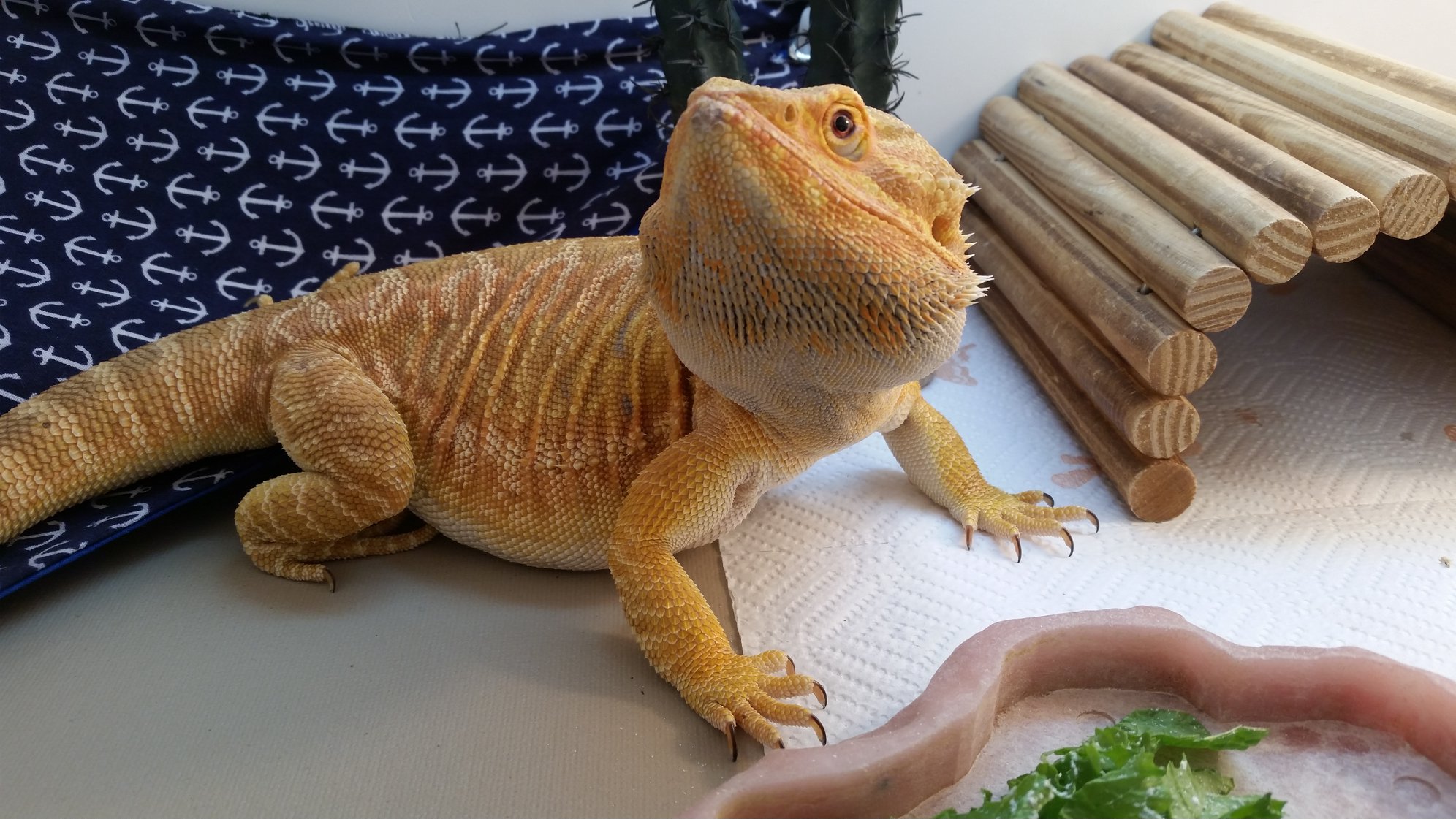Why Your Bearded Dragon Isn’t Eating

1) Improper Lighting
It is crucial that a Bearded Dragon’s enclosure has a correct temperature gradient along with proper UVB exposure. To clarify, the hot side of the enclosure should be around 100F while the cool side of the enclosure should be around 80F. Furthermore, a Bearded Dragon’s enclosure should have a tube UVB bulb (such as the reptisun 10.0 T5 HO bulb) that spans 2/3 of the enclosure’s length. Overall, if a Bearded Dragon does not have the correct heat temperature or vitamin D3 (obtained from UVB), then its body will not function properly which could lead to an unhappy reptile.
2) Stress
If a Bearded Dragon is stressed, then it may not eat. Unfortunately, Bearded Dragons can stress easily for various reasons. For example, a Bearded Dragon can get stressed out if it sees another Bearded Dragon (even if its his or her own reflection in the glass). Also, a Bearded Dragon may get stressed out from shedding or being mishandled. Ultimately, if you suspect that your Bearded Dragon is stressed out, then you’ll have to identify what may be causing stress and eliminate it from the equation.
3) An Illness
For obvious reasons, if a Bearded Dragon is sick or becoming severely ill, then it may not be interested in eating or it may be uncapable of eating on its own. For instance, if a Bearded Dragon is severely impacted, then it may stop eating. Of course, if you suspect that your Bearded Dragon is ill, then it is best to rush to a herp vet as soon as possible. Visit our health page for more information regarding health.
4) Brumation
In the wild, a Bearded Dragon will brumate during winter when temperatures are low and food is scarce. Brumation is a Bearded Dragon’s version of hibernation. In captivity, most Bearded Dragons will not brumate since we control their temperatures and access to food all year round. However, it is still possible for a Bearded Dragon to brumate based off of pure instincts. If this is the case, then a Bearded Dragon will stop eating in general as it goes through its brumation period (sleep and less activity).
5) Picky Eaters
Bearded Dragons can be picky eaters. One week, a Bearded Dragon might love to eat crickets, but then have no interest in them the next week. In this scenario, it is suggested to offer variety in a Bearded Dragon’s diet and mix things up. If the crickets aren’t working, then try dubia roaches and so on. If a Bearded Dragon continues to show no interest, then consider if the Bearded Dragon is mentally and physically healthy and has the correct enclosure setup. Again, a Bearded Dragon may not eat if it is not mentally or physically healthy and has an improper enclosure setup.